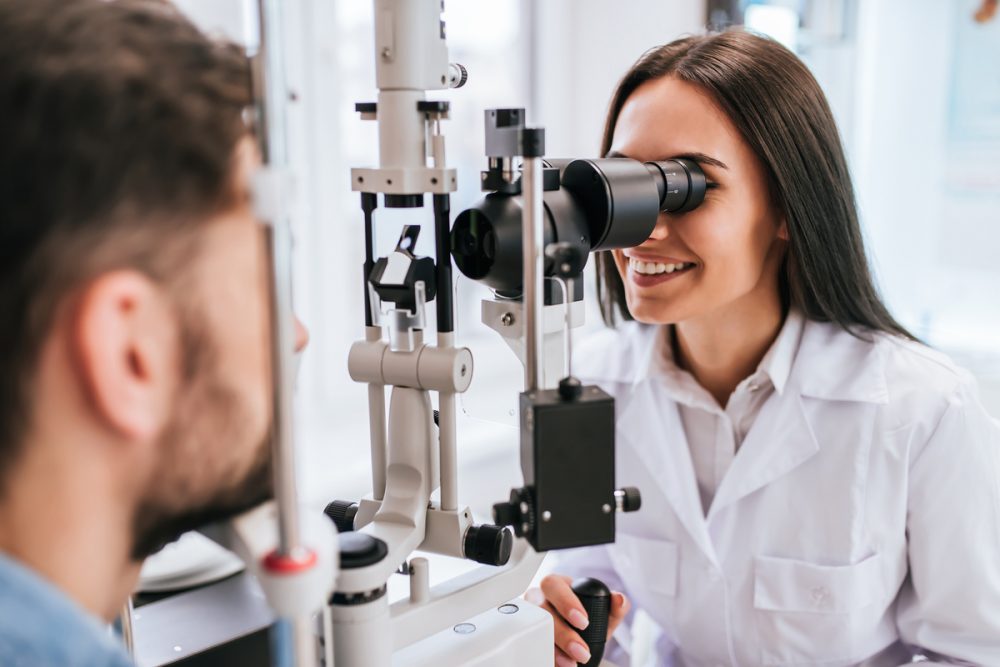The eye doctor can be a confusing thing. There are so many different titles and what they all do seems to vary from place to place depending on the state and region that you’re in. One such eye doctor title is an optometrist, who specializes in eye care and eye health. Another eye doctor is an ophthalmologist who does pretty much everything that an optometrist does, but additionally specializes in surgical procedures related to eye problems.
If you ever find yourself wondering The Difference Between an Optometrist Or an Ophthalmologist, you’ve come to the right place!
An optometrist (OD) sees patients for regular eye exams, refraction of the eyes (for glasses), vision therapy, and contact lens fittings; they can also provide eye disease treatment and management, low vision rehabilitation, pre-and post-operative care following eye surgery or eye injury.
An ophthalmologist (MD) provides the same eye health services as an optometrist with the added benefit of performing eye surgeries, such as cataract extraction, cornea transplantation, LASIK procedures, etc. If you are suffering from something serious like this it is definitely recommended that you see an MD because surgeries are involved.
But what about glaucoma? Well, there is good news for those who are wondering The Difference Between Optometrists Or Ophthalmologists regarding this eye condition: both types of doctors can assist you in treating and managing your glaucoma. But keep in mind, eye MDs and eye DOs (doctor of optometry or similar) will both be able to monitor your eye pressure, diagnose glaucoma and prescribe eye drops for treatment. The eye MD, however, will also be able to conduct laser procedures for those who may need that as well as perform surgeries such as a trabeculectomy (an eye surgery that is performed to release built-up eye pressure).
If you have eye disease, eye injury or any other type of eye problem, it is important to talk with your eye doctor and ask for a referral. The eye MD may recommend a visit with an eye optometrist if eye drops are necessary or eye surgery should be considered. The eye DO will refer you back to the ophthalmologist if surgical procedures involving the removal of part of the eye’s surface (corneal transplantation) are recommended.
Ultimately it comes down to what you need and what would be best suited for your specific set of circumstances.
Related posts
Recent Posts
- Sustainability Redefined: How Keter Group Brings the Blueprint For Better Living With Lakeside Collection October 30, 2023
- Tradingview: Unleashing the Revolutionary Power of Trading August 28, 2023
- 6 Features That Make Cantilever Racking a Smart Investment August 3, 2023
- Achieve Radiant Skin with French Professional Skin Care Brands July 10, 2023
- Use of technology and products for People with Kidney Stones June 19, 2023
- Uncovering New Opportunities for Your Medical Billing Business May 6, 2023
- 10 Reasons to Invest in Automated Insurance Claims Software May 6, 2023



